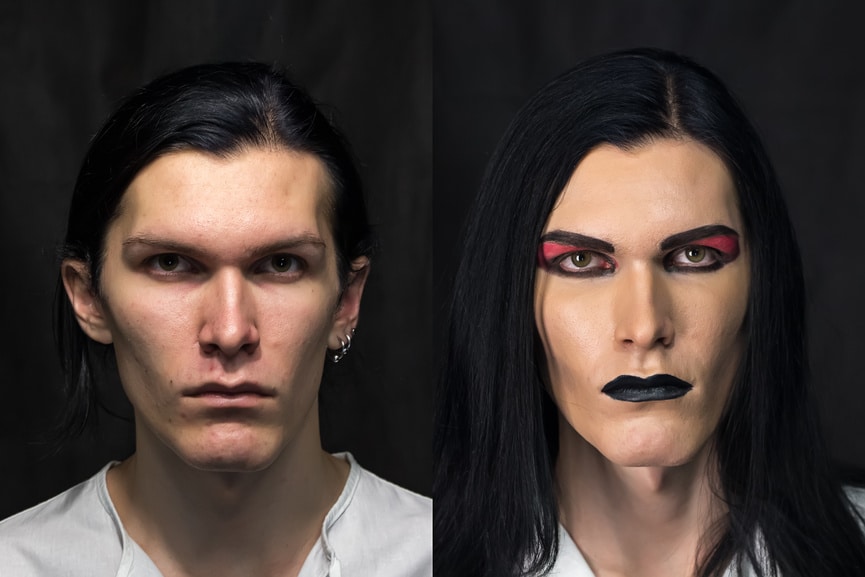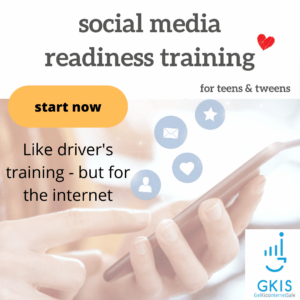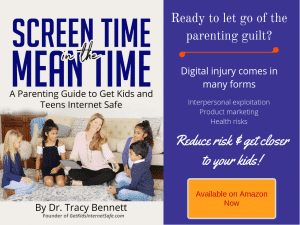
Originally published in The Good Men Project
OK OK, she wasn’t Miley Cyrus. But recently several of my teen clients who role-play online have been experimenting with gender, sexual, and romantic orientation. And just this morning I read on Facebook (my primary source for news these days) that Miley Cyrus came out as, well, gender-something. And it has me wondering, is online role-play healthy experimentation or a dangerous trend?
Screen media is having a profound influence on our culture. Between the Internet, YouTube, video games, and social media apps, we are bombarded by information with more frequency and time spent than ever before in history. Not only is screen media changing the way we consume information, it is also changing how we learn, think, develop as individuals, and interact with the world. There is even evidence that it is changing the structure of our brains! It’s one thing if you’re an adult and your brain is already developed, but what if your brain is still developing?
Teens are particularly expert with screen media, especially those obsessed with webcomics and fandoms.
A webcomic is a comic published on a website, some of which continue on for months at a time (e.g., Homestuck began in 2009, has published over 7,500 pages, and still boasts over a million unique visitors per day).
A fandom is a subculture of fans that interact around a particular interest, such as a webcomic. Fans follow complex story arcs while engaging in analytical discussions about the story and the real world, discussions ripe with slang and constantly building upon shared understanding. Fans exchange artistic and costumed images, videos, and memes that relate to their shared passion and form close relationships and subgroups that interact several hours a day. Some fans meet up at conferences for cosplay (costume play) of their favorite characters.
Along with a love of fantasy and creativity, webcomic fans often have a flair for intelligent and vigorous investigation of gender, sexual orientation, and romantic interest.
Recently I’ve observed that teens are challenging traditional gender and sexual orientations with a dizzying array of alternative sociological concepts and, ultimately, lifestyles. What do I mean?
Because webcomic characters are fantasy-based, they can incorporate any combination of state or trait imaginable. One particular way webcomic authors take artistic license is to create a character of ambiguous gender and/or sexual orientation (e.g., an alien troll who is neither male nor female). As the audience follows these forever growing storylines, they become increasingly tolerant of and curious about character trait ambiguity.
In addition to following webcomic characters with multi-faceted states and traits, many fans go on to act out their interests playing as customized avatars in massively multiplayer online role-playing games (MMORPGs like World of Warcraft). By experimenting with looks, backstories, and behaviors, players witness the intricate impacts that these variables play in social interaction. Keep in mind that they are not only communicating publicly within the game, but they are also interacting privately with individual or groups of players via instant messaging or with headsets and microphones.
Then, from the online world players go into the real world to parody traditional gender behaviors in gender crossplay, a type of cosplay in which participants cross dress.
Consider that fandom kids get a triple load of influence, one as a passive webcomic observer, a second as an engaged fandom participant on- and offline, and a third as a gamer. Many spend more time in these fantasy scenarios and online friendships than as live participants in the non-virtual world. As you might expect, their real lives gradually begin to mimic their virtual lives.
I’ve now worked with several fandom-influenced teens who no longer identify as their born gender in identity, expression, or behavior. Check out the terminology I’m learning from my clients:
- Pangender: Those who identify with all genders
- Trigender: Those who shift from one gender to another depending on their mood or situation
- Gender Fluid: Those who mix two or more genders at a time (bigender for example)
- Transgender: Those who identify with another gender than the assigned gender at birth
Along with using gender-neutral pronouns, my clients born as girls cut their hair short and wear t-shirts and basketball shorts. Clients born as boys wear their hair long and apply guy-liner. It’s all very confusing, indeed.
Now complicate that with sexual orientations (asexual, pansexual, skoliosexual, bisexual, homosexual, heterosexual) and romantic orientation (aromantic, panromantic, polyromantic), and one’s head starts to spin. Lest you think it’s city livin’ that’s creating these issues, think again. With the World Wide Web, anyone with a screen is audience and potential participant to these complex sociological principles.
The teens in my office insist that their open-minded exploration is creating the supportive cultural milieu they idealistically envision. Some feel they were born with unique gender or sexual identities and others believe this exploration is a natural result of experience and experimentation. Their parents look on dazed and shrugging, trying their best to make decisions about slumber party arrangements amidst constantly-shifting gender, sexual, and romantic orientations.
Imagine how these scenarios challenge families. Parents look to me for guidance as to whether they should encourage or discourage gender and sexual experimentation. They fear how their stance may affect their kids’ gender and sexual development.
If they whole-heartedly support gender, romantic, and sexual orientation play, are they encouraging behavior that may be overwhelming for teens in the already complex landscape of adolescence? Alternatively, if they forbid experimentation are they creating the kind of shame and isolation that can lead to serious trouble? After all, transgender youth have among the highest suicide rates of any minority group, leading us to understand this is not always “play,” but for some a working through of their very identity.
In situations where a teen is alone and closeted among family and friends, one can imagine that the opportunity for anonymity and the support of a positive, affirming community such as a fandom could literally be a lifesaver. Alternatively, game play typically involves provocative themes such as violence and sex. Online peers are friends and strangers of all ages, some with positive and others with predatory intent. The lack of transparency and versatility to manipulate what is seen and said during game play, along with a false expectation of anonymity and privacy adds further layers of risk.
On the heels of Bruce Jenner’s recent interview, Miley Cyrus was quoted in OUT Magazine saying, “I didn’t want to be a boy. I kind of wanted to be nothing. I don’t relate to what people would say defines a girl or a boy, and I think that’s what I had to understand: Being a girl isn’t what I hate, it’s the box that I get put into.” So like it or not, our gender-awareness as a society is stretching as I write.
Gender-awareness is one aspect, but sexual awareness is another. Sexual exploration on and offline is a delicate topic for even the most open-minded parents. Teens are often curious and aching for information about their developing bodies and urges, often leading them into online chat rooms for information, chatrooms with little to no monitoring for inaccurate or inappropriate information or conduct and virtually no screening of participants. They also look to celebrity idols for modeling and guidance, maybe not the wise parent’s choice for a big brother/sister/pansibling.
What should today’s parents do to help their teens through these complex identity explorations?
First, become aware that there are some life-spinning issues coming through the digital pipelines. Second, reflect and untangle your ideas and beliefs about these complex issues before you pass confusion and shame onto your kids. And most importantly, keep them safe by filtering inappropriate content before they’re ready and by providinig gender and sexual education early with an ongoing open dialogue. As a parent myself, I am in a constant state of untangling and discussion with every new TMZ report.
As I was writing this article I was reflecting on how my life would be different if I had hours of experience logged with varying gender and sexual identities. Mind-blowing right? When I discussed these issues with my 13 year-old, she responded confidently, “It’s ALWAYS good to be allowed the freedom to be whoever you want,” while I thought on…but do you even know where to start at 13 years old?
Need some sex ed tips to do your best parenting? Check out GetKidsInternetSafe for specific ideas and advice. Please comment and tell me what you think. And please remember, no matter what challenges our kids face, they will always need our patient guidance, love, and support.
I’m the mom psychologist who will help you GetYourKidsInternetSafe.
Onward to More Awesome Parenting,
Tracy S. Bennett, Ph.D.
Mom, Clinical Psychologist, CSUCI Adjunct Faculty
GetKidsInternetSafe.com
Don't worry, we will never spam you.










